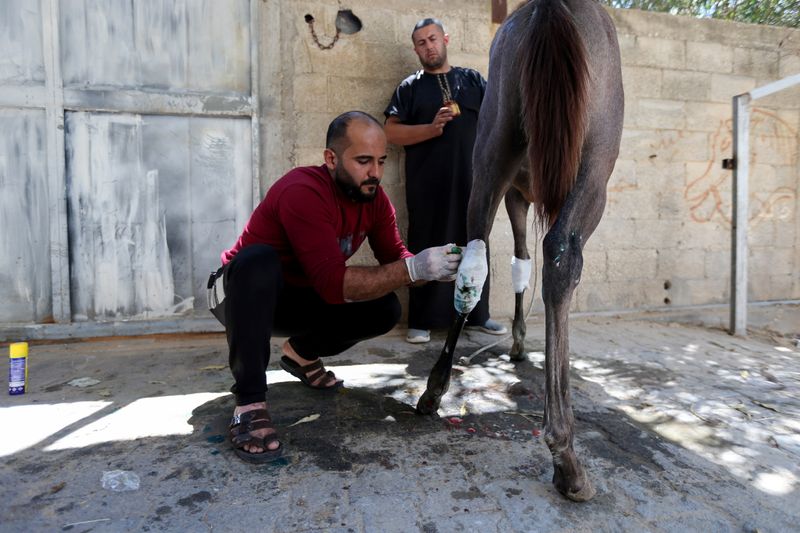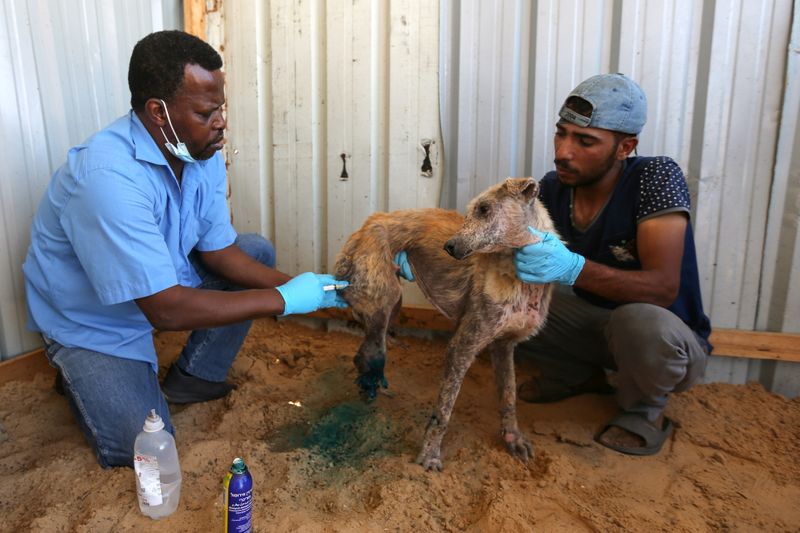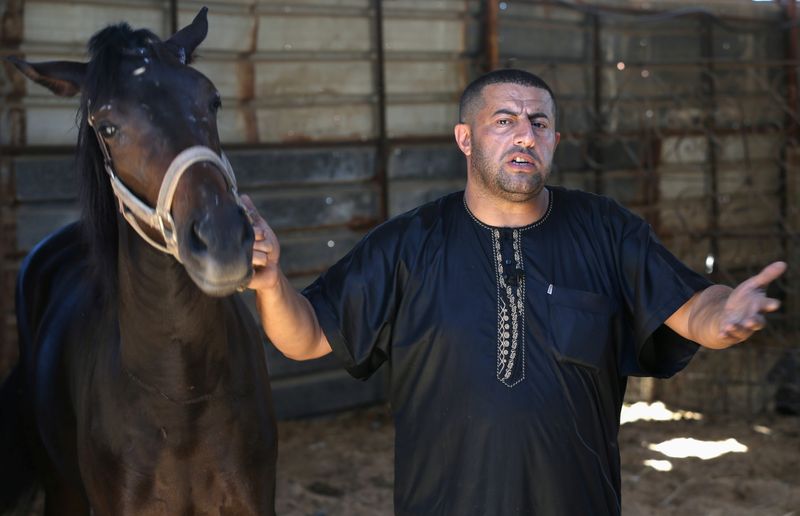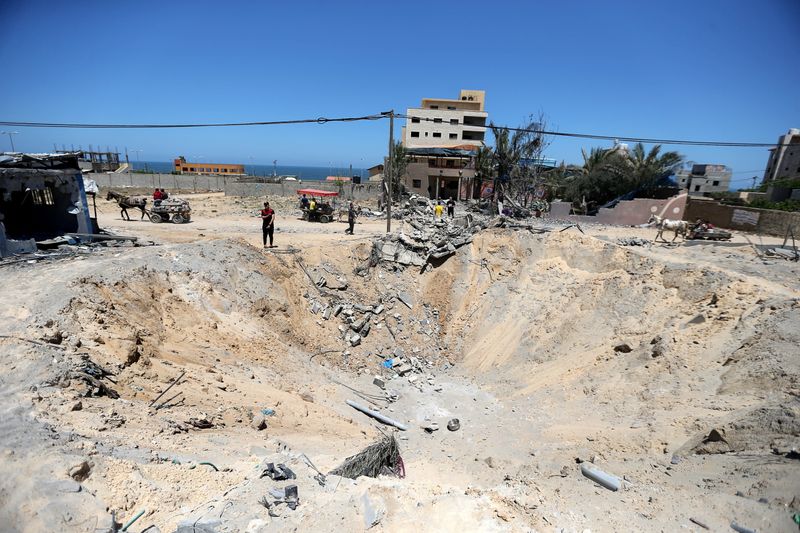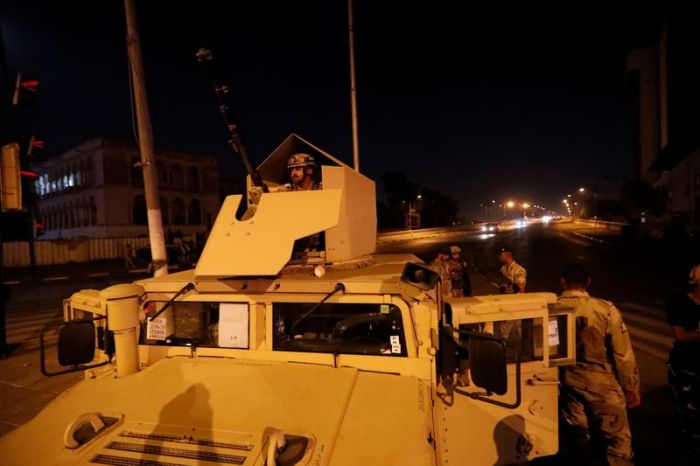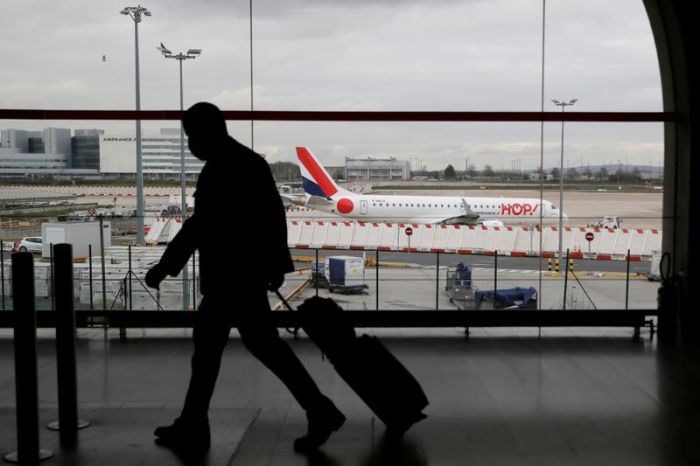GAZA (Reuters) – Palestinian animal welfare groups are tending to street dogs and cats wounded during the 11-day conflict between Hamas militants and Israel, which saw Gaza hit by hundreds of Israeli airstrikes.
At least 253 people were killed in Gaza and more than 1,900 wounded, Palestinian health authorities said.
The Israeli military put the death toll in Israel at 13, with hundreds treated for injuries after rocket salvoes by Hamas caused panic and sent people as far away as Tel Aviv rushing into shelters.
Saeed El-Aer, owner of Sulala Society for Training and Caring for Animals, has been trawling Gaza’s streets looking for abandoned dogs and cats and providing them with medication, food and shelter.
“We are still getting calls about cats and dogs wounded in the war, and we are still trying to reach them to help them,” he said.
As soon as a ceasefire was reached last Friday after the worst hostilities in years between Hamas and Israel, Aer rushed to his animal shelter, built on a piece of land given to him by the municipality in eastern Gaza City’s suburb of Zeitoun.
“I found all the dogs outside it. The dogs were sad, afraid and terrified,” he told Reuters. He said Israeli bombardments had shattered part of the exterior fence.
“I was surprised to see a donkey dead and another horse wounded, who then died. I found dogs wounded with shrapnel, and I am still treating them.”
Gaza, home to two million people, now faces the task of rebuilding shattered infrastructure after the fourth conflict with Israel since Hamas took control of the enclave in 2007, setting up a rival power centre to the Palestinian Authority in the Israeli-occupied West Bank.
In the northern Gaza Strip, shrapnel from an Israeli air strike which destroyed a nearby house also hit Omar Shahin’s stable, injuring three of his four horses.
Shahin was unable to rescue one of his animals, Amira, a two-year old horse who died nine days after being hit by a missile fragment which caused a skull fracture and internal bleeding.
(Writing by Nidal Almughrabi, Editing by Jonathan Saul and Alexandra Hudson)

